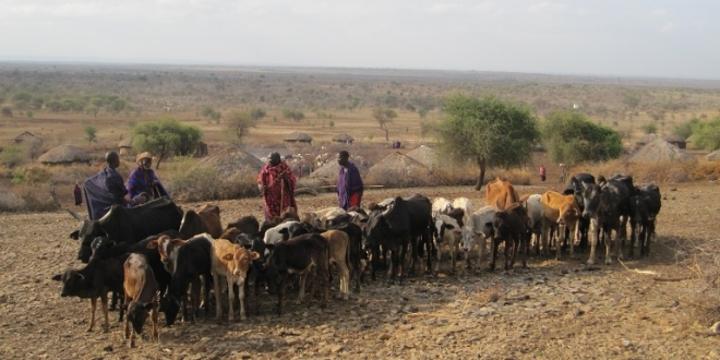Africa-Press – Tanzania. THE government has designated Mkata Ranch in Kilosa District of Morogoro region as part of the mass production of goats with the purpose of having sufficient stock for the export market.
Deputy Minister for Livestock and Fisheries, Abdallah Ulega revealed this yesterday during his meeting with the ranch management, saying it was important to look at how best to run commercial livestock on the ranch. He said the government has chosen Mkata Ranch as a goat breeding station where it will distribute them to various parts of the country.
“As we are planning to embark on ‘loan a goat, pay with goat’ strategy, whoever we will give the goats we will want to know where they live and how many goats they have so that we can include them in our business statistics system.
So that for example if we get a client of 50 kg per month, we can be sure to get it,” he said Because of the strategy, the demand for goats will be huge in the country, so he has asked the ranch to produce goats in large quantities in order to satisfy the domestic and foreign markets.
In addition, Mr Ulega said goat breeders should farm in order to meet the criteria and conditions of international clients, such as Arab countries that want goats which are not mature weighing between 8 and 10 kg. Mkata Ranch Manager, Mr Oscar Magete said the government set the ranch to develop and disseminate better breeding of goats, sheep and cattle, where the ranch has 609 goats,116 sheep and 47 cows.
According to a report by the ministry, in 2015, Tanzania had 16.7 million goats, 8 million sheep, 2.4 million pigs, and 36 million chickens. Tanzania is placed second after neighboring Kenya among countries in East Africa in the production and export of meat, although the country trails Tanzania in the number of livestock.
In another development, Mr Ulega visited the Nobel Vaccine Bioscience (NOVABI) factory in Morogoro which produces three types of vaccines for preventing influenza and other diseases in chicken.
While at the factory, he directed the vaccine to be distributed in various parts of the country, especially in rural areas where there are many indigenous poultry farmers to cut the losses they have incurred from various diseases. He added that it was crucial for the ministry leadership to make sure that various vaccines produced and imported reach the target audience, especially those in rural areas so that they can farm and benefit from their livestock.







